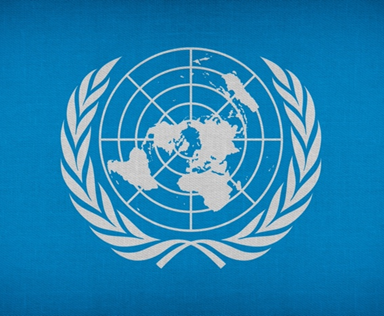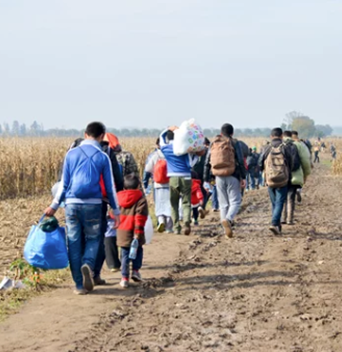Mariam Abbas Brochu, LL.B., J.D., LL.M. crim.

“New sanctions target several of Russia’s elite”, “Canada imposes sanctions on Russian oil, gas and chemical industries”, and « The U.S. Unexpectedly Announces New Sanctions Against China”: are just three of the latest headlines splashed across media outlets in the last couple of years. They refer primarily to unilateral economic sanctions taken by a country, against another, in an attempt to yield political and economic power in having a country bend to its favour. Economic sanctions are readily used and have only grown in popularity over the decades. Mainstream media often discusses them, and they have even become inherent to most dinner table conversations involving politics and international affairs. Apart from understanding that their ultimate objective is to punish, most laymen don’t know what unilateral economic sanctions are at their core and how they impact everyone they come into direct or indirect contact with.
The following article aims to arm the reader with a deeper understanding of economic sanctions and their far-reaching consequences. First, I will dive into the legality of such sanctions and where they find their source. Second, I will highlight the devasting and often overlooked effects these sanctions can have on vulnerable populations.
A. LEGALITY OF UNILATERAL ECONOMIC SANCTIONS
Unilateral sanctions are measures imposed on a country by another without the permission of the UN Security Council, mainly for retaliation, revenge or revision in policies. They often take the form of economic coercion. The use of such sanctions, which inherently push for a change in behaviour or policy, advances the punishing country’s own objectives in an attempt to align the targeted country with said objectives. Such sanctions can be categorized as restrictions on the movement of goods and or people and restrictions on financial transfers. Concretely they take the form of embargos, blockades, import and export restrictions, asset freezing, imposing financial restrictions on private persons, technical assistance prohibitions and other related measures.
The comprehensive trade embargo levied against the government of Nicaragua in 1985 by the United States of America is an example of such a sanction. In doing so, President Reagan suspended trade and services by Nicaraguan vessels and airlines and threatened the termination of a bilateral treaty. The US is also heavily involved in sanctioning Iran, most significantly in its adoption of national legislation, the Iran and Libya Sanctions Act, which regulates and limits a variety of interactions and relationships with the country and its inhabitants.
Such sanctions often seem justified by international headlines, propaganda and legitimate justification, but can they then be deemed legal? Where do unilateral economic sanctions find justification and source in international law? It is a recurring notion that international law, and consequently the United Nations, is flawed and oftentimes ineffective. Countries have taken it upon themselves to act in defence of their national interests, oftentimes by way of unilateral economic sanctions.

As with any legal question, let’s go to the source and identify the available rules of law regarding unilateral economic sanctions. First, Article 2(4) of the United Nations Charter (“Charter”), which requires countries to refrain from the threat or use of ‘force’ against any state, has been interpreted as including economic pressure. Second, Articles 1(2), 2(1), 2(7) and 74 of the Charter bring into question the legitimacy of unilateral actions. These provisions outline that the imposition of such sanctions violates the principles of equality of states and state sovereignty, the development of international relations and ‘good neighbourliness’, the right to self-determination of peoples, consideration of each other’s interests and well-being and furthermore violates the principles of the Charter itself. Though UN resolutions are not formally, legally binding instruments on member and non-member states alike, economic sanctions have also been condemned by the UN General Assembly (UN Resolutions 2131, 2625, 3202, and 3281 have all condemned unilateral economic sanctions), thus reinforcing the notion that unilateral economic sanctions are not legal and find no juridical basis in international law.
As with most rules, there are, however, several exceptions to the illegality of unilateral economic sanctions. First, they may be authorized by the UN Security Council under powers granted to it (Articles 39 and 41 of the Charter). Second, they may be permitted as a countermeasure against the wrongful acts of another state. Third, they are allowed if they receive the consent of the sanctioned state (i.e., participation in a multilateral dispute settlement authorizing such sanctions).
Unilateral sanctions violate the equality between states, the respect for and dignity of national sovereignty and the nonintervention in the internal affairs of states. Thus, despite the recurring use of sanctions and the claims as their necessity in maintaining national security, such economic unilateral sanctions do not have a clear legal basis in international law and their imposition on an international level is subject to the United Nations approval, which some exception.
B. HUMAN RIGHTS CONCERNS

States that implement and resort to unilateral economic sanctions often do so in defence of their national interests. Most of these states openly support human rights and don’t conduct themselves in a manner that purposely violates them. Nonetheless, history has shown that the implementation of sanctions creates undesired side effects; side effects which come in the form of human rights violations and crises.
As previously mentioned, unilateral economic sanctions are a form of coercion. At their core, economic sanctions conflict with the fundamental principles of justice and human rights. Even the most well-intentioned entities, when utilizing these tools, will undoubtedly negatively impact humans. Take the UN Security Council for example. It was not that long ago that it began using such sanctions regularly. However, the consequences resulting from such recourses included preventing besieged countries from ensuring the human rights of their populations, resulting in an important deterioration of the population’s health, and a disastrous increase in infant and child mortality thereby creating several humanitarian problems.
Concretely, the implementation of unilateral economic sanctions oftentimes results in a significant disruption in the distribution of food, pharmaceuticals and sanitation supplies. It can jeopardize the quality of food and the availability of clean drinking water. Such sanctions can severely interfere with the functioning of basic health and education systems and subsequently undermine the right to work.
Throughout the years and with gained knowledge and experience in the tangible possibility of such consequences resulting from their actions, states have attempted to refine their sanctions. This practice has included (1) the inclusion of humanitarian exemptions in comprehensive or sectoral economic sanctions, (2) the use of targeted sanctions, against specific individuals, companies and organizations, and (3) the provision of humanitarian aid to offset the sanctions’ impact. Nevertheless, none of these ‘solutions’ seem to have been fruitful, whether it be on their own or combined.
Providing aid, whether it be as a preventative method or as reparation, has never truly been successful in restoring the full respect or protection of the affected peoples’ human rights. More importantly, it has been suggested that the inclusion of humanitarian exemptions represents a de facto recognition by states that their sanctions produce human rights violations. The conclusion that remains is that the international community is then, in some measure, sanctioning human rights violations by allowing for such unilateral economic sanctions to go unchecked. Thus, such sanctions, while targeting the supreme dictatorships, illegitimate governments, human rights violators themselves, etc., will often produce an immeasurable financial burden on those most vulnerable and will necessarily impact the human rights of the citizens of the targeted country as well as those from the surrounding countries.
In sum, the application of unilateral sanctions imposes suffering and deprivation on innocent citizens of other countries, including mass human rights violations. It deprives them of their right to development and self-determination. If we are then comfortable with concluding that economic sanctions are illegal, or that their legality is at the very minimum questionable, and that the negative effect on innocent civilians far outweighs the possible gains a State could yield, then what?
The issue of unilateral economic sanctions leaves this reader with many unanswered questions. Short of war and faced with the arguably (mostly) ineffective United Nations body, what are by-stander countries, faced with the egregious and escalating behaviours of countries such as Russia and China, to do? Moreover, considering the questionable basis of such sanctions, how can the international community intervene when sanctions go too far and are unreasonable or unwarranted? In other words, in the absence of a sovereign political authority to promulgate and enforce rules surrounding unilateral economic sanctions, where should countries turn? Does the answer lie in transnational law; can the latter mitigate the gaping wounds left by traditional international law bodies and mechanisms?
